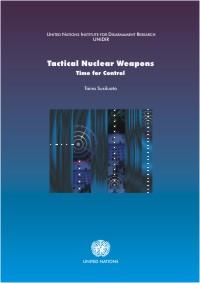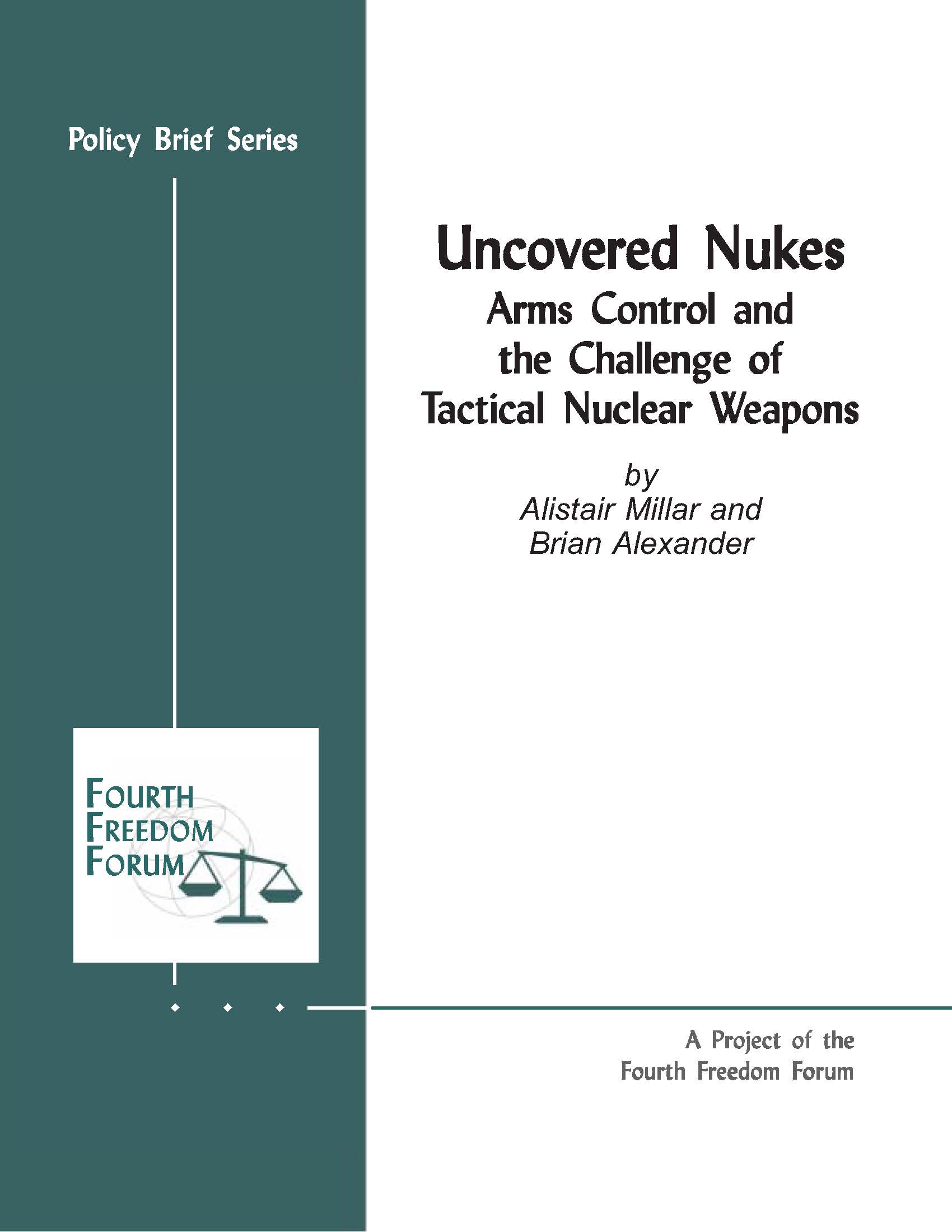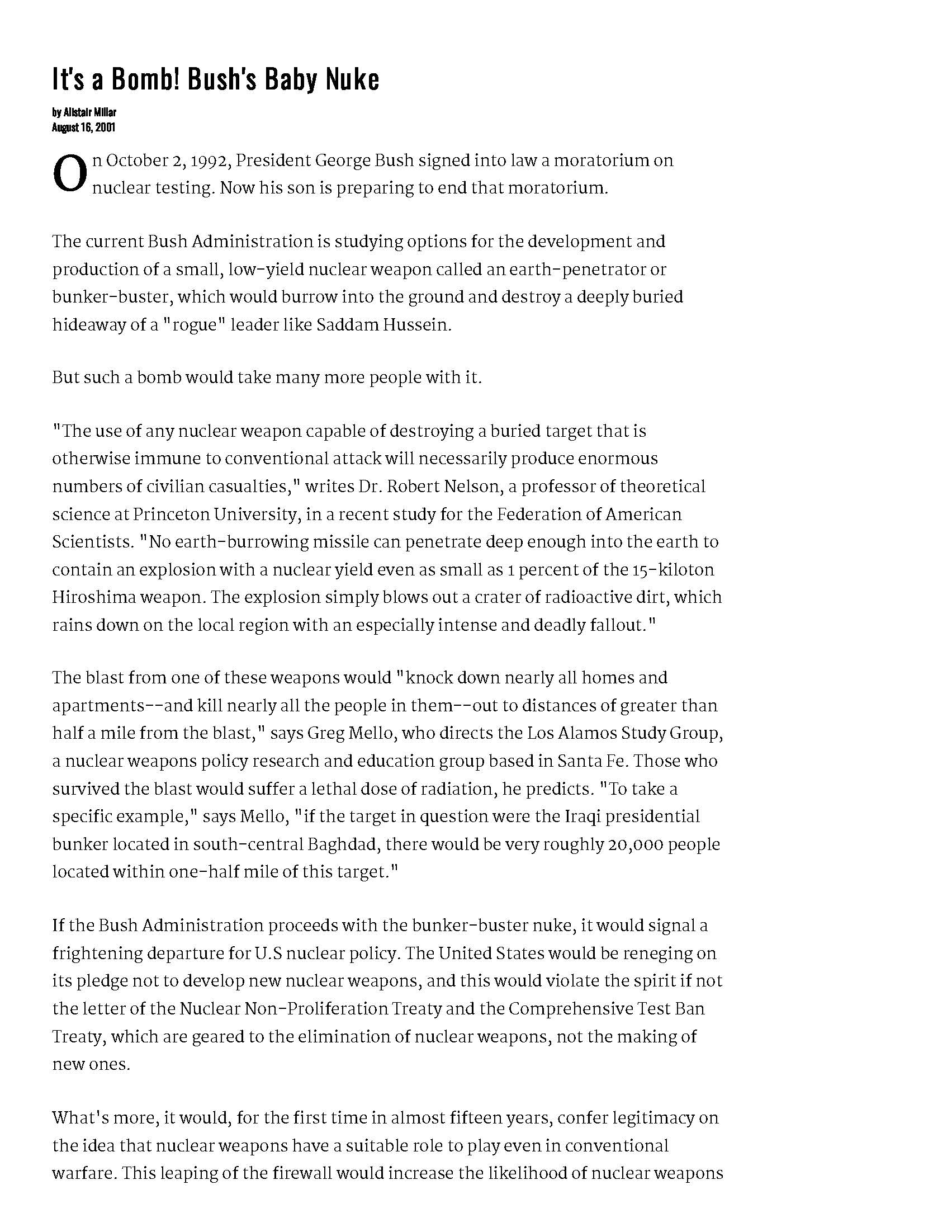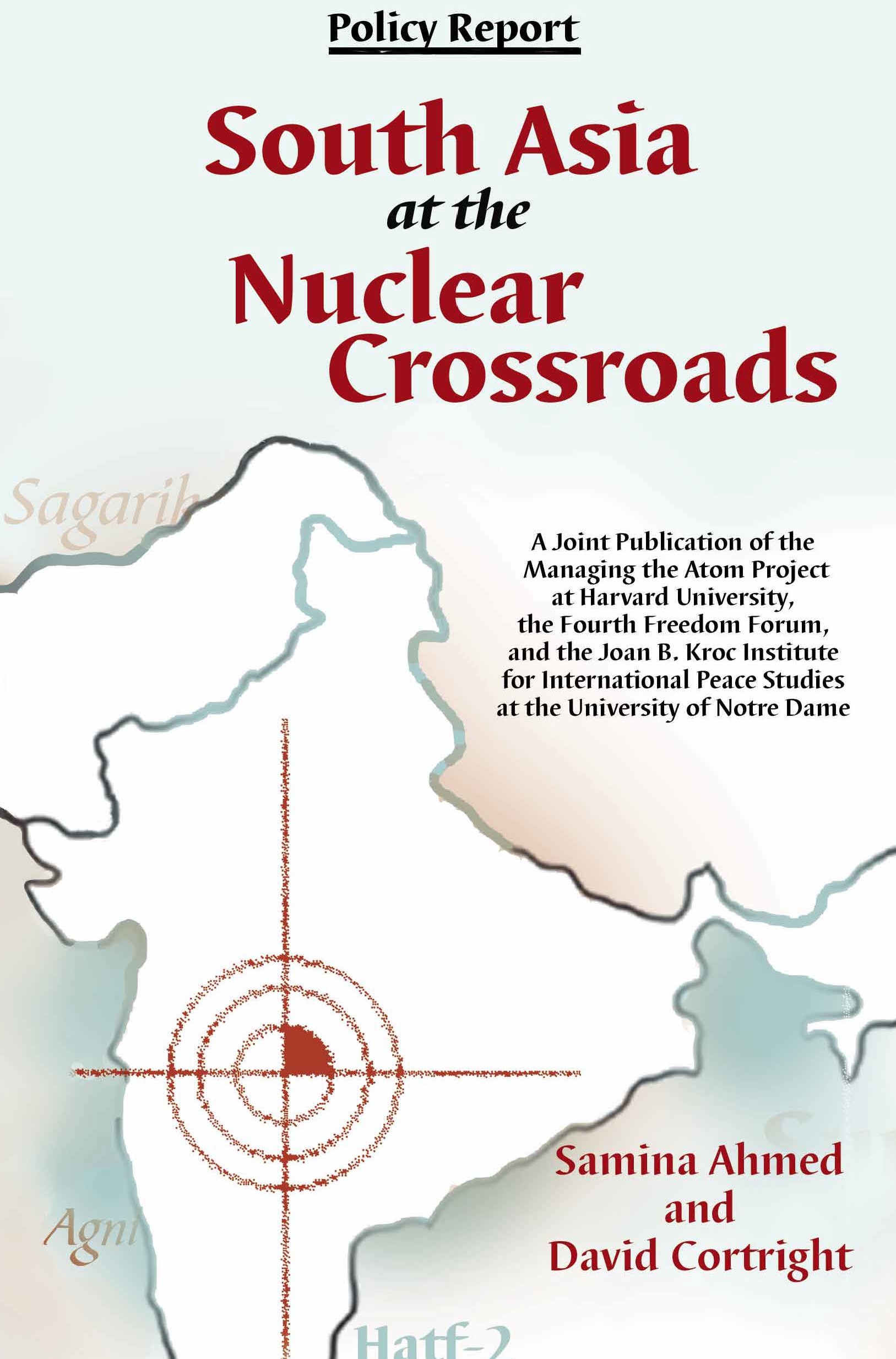Shifty Nuke Accounting: Bush Arsenal Cuts Reprise Cold War
Newspaper article — 28 January – 3 February 2002
“Shifty Nuke Accounting: Bush Arsenal Cuts Reprise Cold War,” by Alistair Millar in Defense News, 28 January – 3 February 2002.

“Shifty Nuke Accounting: Bush Arsenal Cuts Reprise Cold War,” by Alistair Millar in Defense News, 28 January – 3 February 2002.

“Fuel for the Fire: Tactical Nuclear Weapons and Terrorism,” by Alistair Millar in Tactical Nuclear Weapons: Time for Control, ed. Taina Susiluoto (Geneva: United Nations Institute for Disarmament Research, 2002).

“Mini Nukes, Other Devices, Not Options,” by Alistair Millar in South Bend Tribune, 28 November 2001.

“What About those 5,000 Tactical Nuclear Weapons,” by Alistair Millar and Brian Alexander in Houston Chronicle, 17 November 2001.

“Why Nuclear Weapons Reductions Aren’t Enough,” by Alistair Millar in San Diego Union-Tribune, 15 November 2001.

This report addresses currently deployed and stored arsenals of tactical nuclear weapons on the one hand, and problems related to the potential for future development of low-yield, bunker buster, earth penetration tactical nuclear weapons on the other. Each category of tactical nuclear weapons, whether old, new, or on the drawing board, presents risks to global security that have been exacerbated by the marked increase of the threat of terrorist attacks.

“It’s a Bomb! Bush’s Baby Nuke,” by Alistair Millar in The Progressive, 16 August 2001.

“It’s Time to Tear Down the Wall with North Korea,” by Alistair Millar in Asia Times, 13 July 2001.

“Delivering on Nuclear Campaign Promises,” by Alistair Millar and Brian Alexander in Baltimore Sun, 17 May 2001.

The report recommends that an interim goal for the Bush administration should be to cap India’s and Pakistan’s nuclear weapons programs below the deployment threshold. However, the U.S. should also seek to persuade and pressure India and Pakistan to roll back and eventually eliminate their nuclear weapons programs. Diplomatic engagement and other incentives can play a major role in convincing India and Pakistan to curb their nuclear weapons programs. However, inducements on their own will fail to influence South Asian nuclear decision makers unless they are accompanied by sanctions which constrict the flow of critical materials to South Asia.
